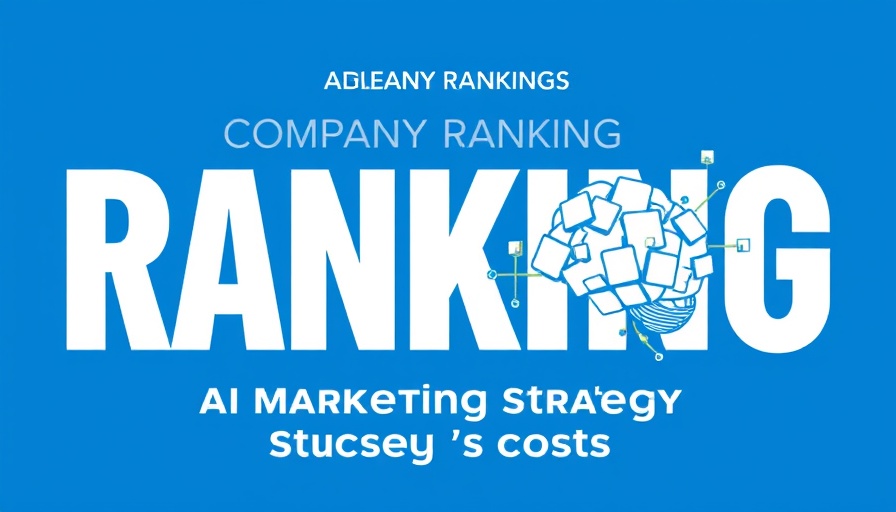
The Rise of the Marketing AI Institute: A Journey of Innovation
In an age where artificial intelligence is reshaping industries, the Marketing AI Institute has emerged as a beacon of innovation, recently earning a spot on the prestigious Inc. 5000 list of the fastest-growing private companies in America. The Institute’s notable 12x growth over the last three years reflects the shifting landscape toward AI-driven solutions in marketing and business growth.
Defining Metrics of Success: What it Takes to Make the Inc. 5000
This year's Inc. 5000 list ranks companies based on revenue growth from 2021 to 2024, demanding a minimum income of $100,000 in 2021 and $2 million by 2024. The recognition acknowledges not only financial metrics but also the innovative approaches that drive such growth environments. The Marketing AI Institute’s rapid ascent—landing at position #320—signals its effective integration of AI across its offerings, making it a leader in AI marketing strategy.
An Interview with Visionary Paul Roetzer: Navigating Challenges and Transformation
To celebrate this remarkable achievement, I had the unique opportunity to interview Paul Roetzer, the founder of the Marketing AI Institute. "This award is a tribute to how much work the team has put in and the belief in our vision," he said, acknowledging the hard road that led to their current success. In a realm where many industry players are just beginning to grasp the potential of AI, Roetzer’s foresight in founding the Institute has put them ahead of the curve.
From Blog to Educational Powerhouse: The Institute’s Evolution
Founded in 2016 as a blog and newsletter, the Marketing AI Institute aimed to explore the intersection of marketing and artificial intelligence during a more nascent period in AI technology. Roetzer's bold decision to spin the Institute off as a standalone entity in 2018 demonstrated his commitment to harnessing AI’s true potential, even as the marketplace held reservations. The launch of their inaugural Marketing AI Conference (MAICON) in 2019 set the tones for its growth in community engagement and education.
Risks and Rewards: How an Entrepreneur Confronts Uncertainty
As Roetzer reflects on the struggles, including the impact of the COVID-19 pandemic, he emphasizes the importance of resilience. With a subscriber base of over 15,000, the Institute wasn’t merely surviving—it was preparing to thrive. Successfully raising $1 million in seed funding not only kept the lights on but also provided a runway for future innovations, affirming the critical need for AI in transforming customer experience.
The Role of AI in Future Business Strategies
The future of business is intertwined with AI technologies. Roetzer believes we are still at the frontier of what AI can achieve. Companies are increasingly utilizing tools like AI sales automation and AI lead generation to enhance efficiency and effectiveness in reaching and serving customers. By developing a deep understanding of AI marketing strategy, businesses are enjoy enhanced performance, and organizations are adopting AI to redefine best practices in customer engagement.
Looking Forward: Trends Shaping the AI Landscape
As the Marketing AI Institute moves forward, the landscape of AI will continue to evolve dramatically. Anticipating trends such as increased adoption of AI in decision-making processes, personalized marketing at scale, and enhanced data analytics capabilities will be crucial. For those interested in harnessing these advancements, engaging with thought leaders like Roetzer offers valuable insights into strategic implementations.
In summary, the journey of Marketing AI Institute exemplifies the power of vision and innovation against the challenges of a transforming industry. By embracing the transformative capabilities of AI, the Institute not only finds itself listed in the top echelons of American businesses but also lays the groundwork for future growth in the digital marketing sphere. The story of AI in marketing is just beginning—will you be part of it?
 Add Row
Add Row  Add
Add 





Write A Comment